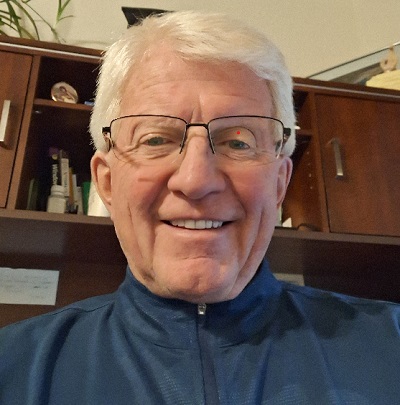International
Trump envoy Steve Witkoff calls out neocons pushing for war with Iran
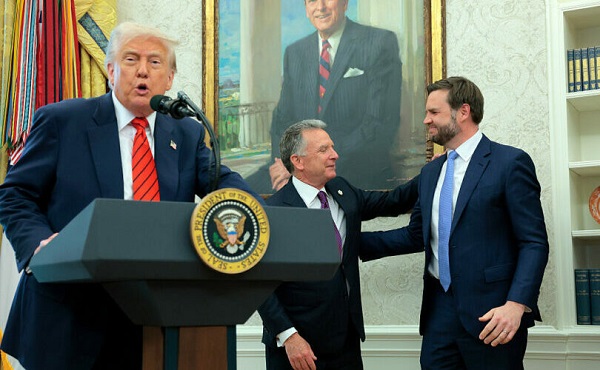
From LifeSiteNews
The comments come as more hawkish establishment conservatives are orchestrating a campaign to oppose the Trump administration’s diplomacy with Iran.
President Trump’s foreign policy envoy on Thursday criticized those who are trying to undermine the president’s negotiations to place limits on Iran’s nuclear program, saying they have a “bias toward military action,” adding that he and Trump instead wanted to put diplomacy first in U.S. foreign relations.
“In their minds, anything that is of a military nature to be a solution to that problem, they have a bias towards that. They give no consideration whatsoever on what the consequences are on that,” envoy Steven Witkoff said during an interview with Breitbart. “The neocon element believes that war is the only way to solve things.”
Trump “believes in peace through strength, which essentially means that resorting to violence and war is not necessarily in the best interest of the country and not necessarily the best way to effect truces, ceasefires, permanent peace — whatever we want to call it,” Witkoff added. “Dialogue and diplomacy are an avenue he wants to pursue each and every time because if he can get to a successful resolution that’s in the best interest of the United States.”
Witkoff’s comments come as more hawkish establishment conservatives are orchestrating a campaign to oppose the Trump administration’s diplomacy with Iran. But the White House and its allies are pushing back.
More recently, Trump reportedly fired his national security adviser Mike Waltz because Waltz was pushing for war with Iran in internal conversations on the issue. And Trump allies outside the administration — like Rep. Marjorie Taylor Greene (R-Ga.) and conservative media star Tucker Carlson — have been increasingly vocal in criticizing Iran hawks.
READ: Israel ‘desperately needs’ US to wage war on Iran to rescue Netanyahu, ex-diplomat warns
Meanwhile, House and Senate Republicans this week started pushing their colleagues to call for only a full dismantlement of Iran’s program.
Witkoff appeared to push back on that effort during his interview with Breitbart while stressing a diplomacy-first approach.
“I believe in [Trump’s] policy of attempting to settle the Iranian conflict through dialogue. First of all, that’s a more permanent solution to that crisis than any other alternative,” he said. “If we get them [Iran] to voluntarily shift away from an enrichment program where they can enrich to not have centrifuges, to not have material that can be enriched to weapons-grade levels 90%. If we can get them to voluntarily do that, that is the most permanent way to make sure that they never get a weapon.”
Reprinted with permission from Responsible Statecraft.
Crime
The “Strong Borders Act,” Misses the Mark — Only Deep Legal Reforms Will Confront Canada’s Fentanyl Networks
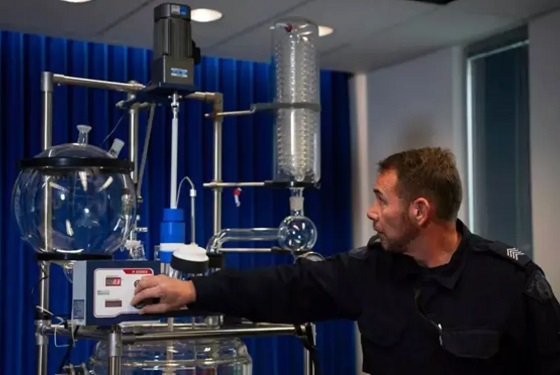
The fallout is a grim roll call of major investigations that collapsed before trial in British Columbia, Alberta, Ontario, and Quebec: Project E-Pirate, E-Nationalize, Syndicato, Cobra, Brisa, and Endgame all aborted.
Bill C-2, Ottawa’s so-called “Strong Borders Act,” promises to secure Canada’s frontiers with new surveillance powers, sweeping ministerial discretion, and higher penalties. But as veteran Canadian investigators know, the bill misses the point. It is an omnibus solution that expands the state’s reach online, while leaving untouched the very legal choke points that have made Canada a permissive financial platform and fentanyl laboratory for cartels, Triads, and state-linked terror networks.
For more than a decade, Canadian and U.S. enforcement leaders have pointed to the same failures. Police are confronting transnational fentanyl labs, a flood of Chinese chemical precursors, Hezbollah-linked laundering, and Mexican cartels setting up on Canadian soil.
Yet they are forced to fight these threats with laws “never designed for today’s criminal landscape,” as Canadian Chiefs of Police president Thomas Carrique recently warned.
Former RCMP investigator Calvin Chrustie testified before British Columbia’s Cullen Commission that, due to judicial blockages arising from Charter of Rights rulings, by 2015 it had become effectively impossible to obtain wiretaps on Sinaloa Cartel figures in Vancouver.
This year, RCMP Assistant Commissioner David Teboul said a proliferation of “commercial-grade chemistry” fentanyl labs in British Columbia — like the sophisticated factory dismantled last year in Falkland, north of Lake Okanagan, where Mexican cartels have quietly taken over domestic biker gang networks — underlined the urgent need for legislative reform.
Canada wasn’t always so overwhelmed by lethal foreign gangs. What happened? Overly permissive immigration rules and porous borders explain part of the story, but the deeper problem lies in the laws that have steadily eroded enforcement power since the early 1990s.
Instead of enabling prosecutions against transnational traffickers of humans, narcotics, and weapons, unintended consequences from misguided jurisprudence surrounding Canada’s Charter of Rights now ensure these cases almost always collapse, or are simply avoided by the Crown.
Two Supreme Court rulings — Stinchcombe and Jordan — have gutted the capacity to prosecute complex crime. Stinchcombe requires exhaustive disclosure of sensitive intelligence, often impossible in Five Eyes investigations that depend on close cooperation between Canada and the United States.
Jordan imposes strict trial ceilings that tick down while Stinchcombe disclosure battles drag on. Criminal lawyers know these two rulings function as trump cards stacked in favor of their clients.
The fallout is a grim roll call of major investigations that collapsed before trial in British Columbia, Alberta, Ontario, and Quebec: Project E-Pirate, E-Nationalize, Syndicato, Cobra, Brisa, and Endgame all aborted. Project Collecteur — a landmark probe linking Hezbollah and foreign terror-financing networks across Canadian cities to transnational drug money laundering, built on U.S. and Australian intelligence — barely made it to court, despite its far-reaching implications.
It was crippled by RCMP corruption and by underfunded, risk-averse agencies that abandoned Canadian leads painstakingly developed by Five Eyes partners.
How bad was it?
Farzam Mehdizadeh, a major Iranian money launderer and suspected weapons proliferation actor who ran a Toronto currency exchange while shuttling bags of drug cash between Toronto and Montreal, escaped back to Iran just as the RCMP was poised to arrest him on money-laundering charges. The beneficiary of a leaky national police force, evidently.
A senior U.S. enforcement source told The Bureau that during Project Collecteur, the RCMP stumbled onto an even bigger Chinese money launderer while probing Iranian networks, but the agency ignored the file — reportedly unable to shift its original investigation focus onto new enterprise targets.
These kinds of policing failures and decisions are part of the reason President Donald Trump has said senior U.S. investigators told him that Canada lacks the resources and capacity to confront fentanyl trafficking gangs.
In Washington, there is frustration — and at times a lack of understanding — that Stinchcombe either bars or effectively scares the Mounties out of cooperating with U.S. agencies or sharing intelligence.
Derek Maltz, former DEA chief under President Trump, pointed to the Falkland fentanyl super-lab case — part of a U.S.-led probe into Chinese precursor suppliers — as the latest example of “historical issues with the RCMP not sharing properly,” calling it a “major disaster that happened on that big lab in British Columbia.”
“It goes down to the basic information sharing, the antiquated laws,” Maltz said. After meeting with current Canadian police leadership, he concluded: “They’re so far behind and the laws are so antiquated and so archaic.”
The cost is staggering. Officers walk away from enterprise files, knowing they cannot meet disclosure or trial deadlines. Prosecutors refuse to take high-risk cases. U.S. agencies stop sharing intelligence that could be exposed in open court. Canada defaults to “low-hanging fruit” prosecutions while the upper echelons of global networks operate with near impunity.
Meanwhile, at the border, permissive Non-Resident Importer rules allow foreign entities to move chemical precursors through Canadian ports under layers of corporate opacity. Chinese logistics hubs repackage bulk fentanyl shipments bound for Vancouver, obscuring Canada’s visibility into their true origin. Once in Canada, packages can be collected by foreign nationals who further conceal their identities. To visualize the scheme, think of an “end-to-end encryption” app — Chinese trafficking networks enjoy the same kind of seamless concealment when shipping narcotics into Canada.
At the same time, Vancouver’s port — stripped of federal police under Jean Chrétien’s Liberal government — has container inspection rates below one percent, according to a British Columbia study.
It doesn’t seem that Bill C-2 will do anything to address these core vulnerabilities. It gives Ottawa broad powers to expand online surveillance, which may help with the drug networks that now brazenly advertise street sales on social platforms. But it would do so by subjecting all Canadians to invasive cyber surveillance. The bill does not target the transnational criminals who are already easy to identify and well known to law enforcement. These networks continue to operate openly in Canada, confident that the Charter shields them from real prosecution.
Meanwhile, experts warn that parts of C-2 resemble Ottawa’s wish list of new powers tossed into a grab bag. The effect is the opposite of inspiring public confidence or addressing the real enforcement crisis. As written, Bill C-2 could do more harm than good. Mark Carney’s government should shelve it and start again with the reforms Canada actually needs.
The Bureau is a reader-supported publication.
To receive new posts and support my work, consider becoming a free or paid subscriber.
Business
UK Government Dismisses Public Outcry, Pushes Ahead with Controversial Digital ID Plan
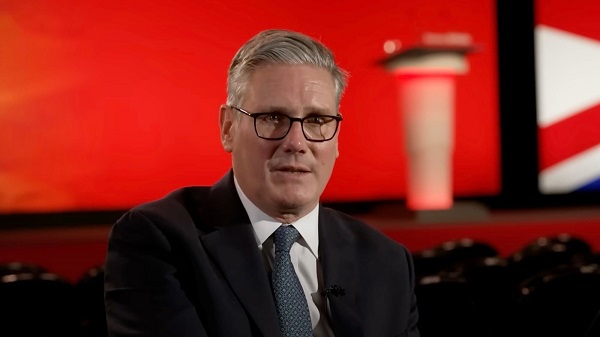
Over 2.7 million signatures couldn’t move the needle on a dystopian plan already set in motion.
|
A UK government plan to introduce a nationwide digital identification system is moving ahead, despite a public backlash that saw more than 2.7 million people sign a petition urging its cancellation.
The proposal, first announced by Labour in September, would provide a digital ID to every UK citizen and legal resident aged 16 and above.
Prime Minister Keir Starmer claimed the new system would help strengthen border enforcement and reduce illegal employment, describing the ID, dubbed the “Brit Card,” as a tool to “make it tougher to work illegally in this country, making our borders more secure.”
The public response was overwhelmingly opposed. Warnings about centralized data collection, privacy intrusions, and increased state surveillance flooded public discourse.
Descriptions of the proposal ranged from a “dystopian nightmare” to fears of a gateway to “digital control.”
Not long after Labour’s announcement, a petition was created on the official UK Government and Petitions website.
|
 |
|
It quickly gathered enough signatures to qualify for parliamentary debate, a 100,000-signature benchmark, and within days surged past two million.
Despite reaching over 2.7 million signatures, the government issued a formal response rejecting the petition and restating its commitment to the scheme.
According to the response, published by the Department for Science, Innovation and Technology, the new ID system is part of Labour’s wider aim to modernize public services.
“We will introduce a digital ID within this Parliament to help tackle illegal migration, make accessing government services easier, and enable wider efficiencies. We will consult on details soon,” the government wrote.
Although a formal consultation process is expected in the coming weeks, involving employers, unions, and civil society organizations, the government made it clear that legislation to support the digital ID system is on the way.
Over time, it is expected to serve as a single access point for government services like benefits, tax records, and other official interactions, potentially eliminating the need for physical documents or multiple logins.
The government’s decision to push ahead with a national digital ID comes in the shadow of the recently enacted Online Safety Act, which has already laid the groundwork for sweeping identity checks across the internet.
That law, marketed as a way to protect children from harmful content, gave regulators broad authority to demand age verification for accessing a wide range of online services.
The result is an emerging digital framework where proving who you are, even just to browse or communicate, is becoming a condition of access.
|
-

 Business2 days ago
Business2 days agoBill C-8 would allow minister to secretly cut off phone, Internet service
-
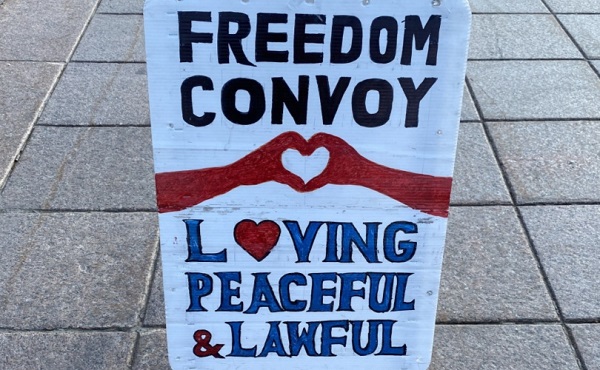
 Censorship Industrial Complex2 days ago
Censorship Industrial Complex2 days agoWhen Did Traditional Values Become Hate Speech?
-
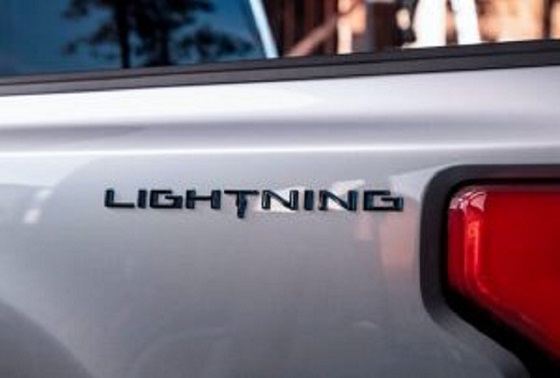
 Automotive2 days ago
Automotive2 days agoAmerica’s Troubled EV Industry Loses Its Subsidized Advantage – Now What?
-

 Fraser Institute2 days ago
Fraser Institute2 days agoCarney government should scrap gun ‘buyback’ program and save taxpayer money
-
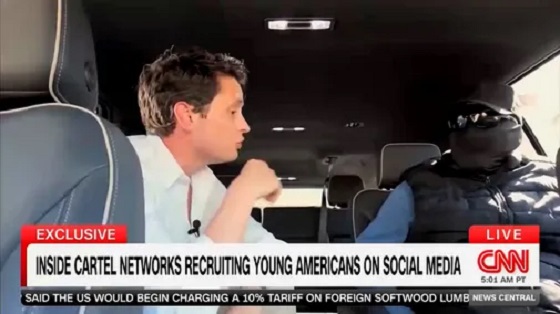
 Crime2 days ago
Crime2 days agoDrug trafficker says Trump battle with the cartels is making an impact
-

 Business16 hours ago
Business16 hours agoLA skyscrapers for homeless could cost federal taxpayers over $1 billion
-
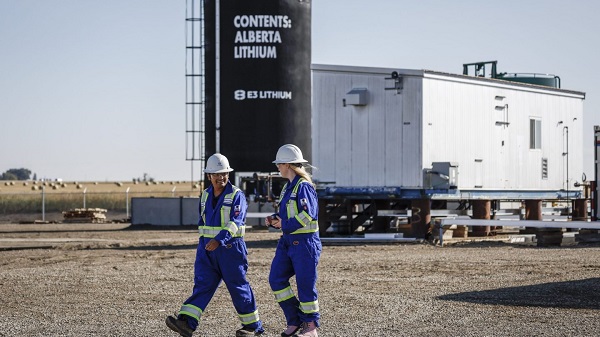
 Alberta16 hours ago
Alberta16 hours agoAlberta’s E3 Lithium delivers first battery-grade lithium carbonate
-

 Artificial Intelligence15 hours ago
Artificial Intelligence15 hours agoAI chatbots a child safety risk, parental groups report








